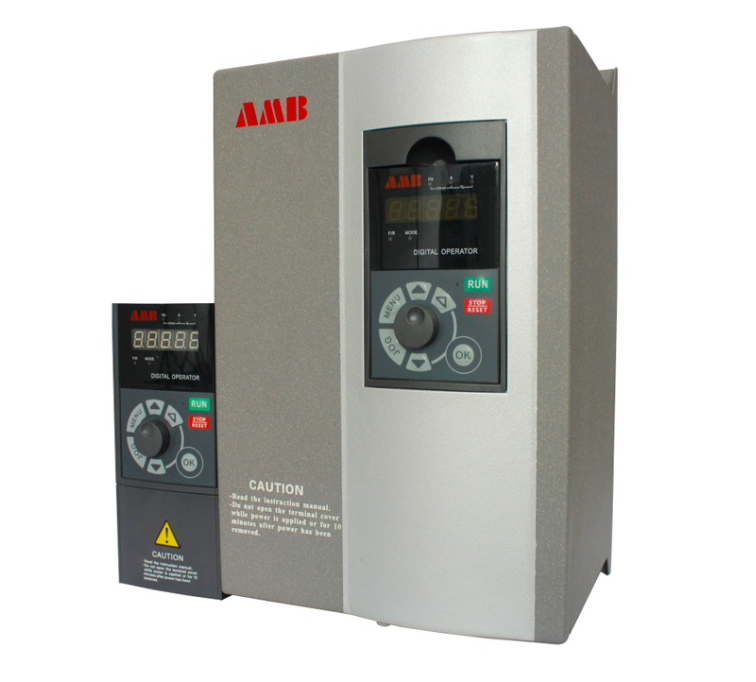
I believe a lot of power to drive practitioners are not familiar with, as opposed to conventional electrical circuit control, high technology content converter, it is a combination of strong and weak electrical equipment, so its failure varied, only constantly sum up experience combined with theoretical knowledge from practice, exemplified below 15 frequently asked questions about the frequency converter (inverter definitions and some failures often occur), which is something you know?
1. What is the frequency resolution? What is the significance?
For digital control drive, even when the frequency command is an analog signal, the output frequency is also given level. The smallest unit is called the differential frequency resolution. Frequency resolution is typically a value of 0.015 ~ 0.5Hz. For example, resolution is 0.5Hz, 23Hz then the above may become 23.5,24.0 Hz, so the operation of the motor is also a follower stage. For use as such a control winding on a continuous cause problems. In this case, if the resolution is about 0.015Hz, for the four motors of a differential 1r / min or less, can be sufficiently adapted. Further, some types of aircraft given the same resolution and the output resolution is not.
2, there is acceleration time and deceleration time can be respectively given models, and ramp time together given the aircraft, what's the point?
Deceleration may each given model, for quick acceleration, slow deceleration occasions, or for a small machine requires strict tact time given occasion is suitable, but for the fan drive and so on, have a longer deceleration time, acceleration and deceleration times can be given together.
3. What is regenerative braking?
If the motor operation command to reduce the frequency, the running state of the motor becomes an asynchronous generator, operates as a brake, which is called regeneration (electric) braking.
4, would be given a greater braking force?
Regeneration energy from the motor out of the filter capacitor storage drive, since the relationship between the capacity and voltage of the capacitor, the regenerative braking force general inverter rated torque of about 10% to 20%. As to optional brake member units, it can reach 50% to 100%.
5, inverter protection?
Protection can be divided into the following two categories:
(1) for detecting automatically correcting operation after an abnormal state, such as stall prevention overcurrent, overvoltage stall prevention regeneration.
(2) after detecting abnormal power semiconductor devices blocking the PWM control signal, the automatic stop of the motor. The overcurrent-cutoff, regenerative overvoltage cut, overheating and cooling fan semiconductor instantaneous power failure protection.
6. Why continuous load clutch, the protection function of the inverter on the action?
When the load is connected with the clutch, an abrupt change in an instant, the motor slip to a large area of the connection from the idling state, a large current flows through the inverter overcurrent trip cause, can not operate.
7, in the same factory with moving large motors, inverter operation stops, why is this?
Will flow through the motor when starting and the starting current corresponding to the volume, the stator side of the transformer generates a voltage drop of the motor, this drive is large drop on a large capacity motor, connected to the same transformer undervoltage or instantaneous stop will be made the judge, therefore sometimes protection (IPE) action, resulting in shutdown.
8, stall prevention function is what does this mean?
If a given acceleration time is too short, the inverter output frequency far exceeds the speed variation (electrical angle frequency), because the drive current flowing through the trip operation is stopped, which is called stall. In order to prevent stalling the motor continues to operate, it is necessary detected magnitude of current frequency control. When the acceleration current is too large due to slow the rate of acceleration. The same is true when decelerating. The two together is the stall function.
9, when the installation of the inverter mounting orientation Is there a limit?
Internal structure and the back of the drive considers the cooling effect, the relationship between the upper and lower ventilation is important, therefore, for a haplotype within the disc, are hung on the wall in longitudinal position, vertical as possible.
10, inverter overvoltage
Overvoltage alarm typically occur when the shutdown, mainly due to the deceleration time is too short or the braking resistance and unit in question.
11, Drive over temperature
Further there are drive temperature faults, such as high temperature alarm occurs, the temperature sensor is normal by inspection, it may be due to interference can be shielded fault, should also check the ventilation fan and the drive case. For other types of faults, preferably contact the manufacturer to obtain a quick viable solution.
12, inverter over-current alarm is the most frequent phenomenon
Inverter over-current phenomenon
(1) restart, a liter of speed on the trip. This is very serious over-current phenomenon. The main reasons are: the short-circuit load, the mechanical parts are stuck; inverter module damage; motor torque is too small to cause such phenomena.
(2) Power jump phenomenon typically can not be reset, for two main reasons: module bad, bad drive circuit, the current detection circuit bad. When the trip but does not immediately restarted at the time of acceleration, the main reasons are: acceleration time is too short, the current limit is set too small, high torque compensation (V / F) setting.
Can 13, not soft start, the motor drive directly into a fixed frequency?
At very low frequencies is possible, but only if the given frequency with a high frequency power directly starting similar. The starting current flowing (6-7 times the rated current), due to the over-current converter switches, the motor can not start.
14, when the motor exceeds 60Hz operation noted that the problem?
More than 60Hz operation should note the following
(1) mechanical means and at the full speed operation may be (mechanical strength, noise, vibration, etc.)
(2) the motor enters the constant power output range, the output torque can be maintained for a work (fans, pumps, etc. the shaft output increases proportional to the cube of the speed, it is also noted that the rotational speed rises slightly).
(3) produce bearing life issues should be fully taken into account.
15, do not drive long-term what will happen?
1. The inverter fan bearing lubricant dry, affect the use.
2. Long-term high-voltage filter capacitor bulge not easy, low-voltage electrolytic capacitors prone to leakage.

|
|

|
| The public, | Mobile station |
 0755-81719517
0755-81719517
|
|
 0755-81719530 0755-81719530 |
 amb@ambition.com.cn amb@ambition.com.cn |
 Floor 1, 5 and 6, building 7, lijincheng science and technology industrial park, gongye dong road, longhua new district, shenzhen Floor 1, 5 and 6, building 7, lijincheng science and technology industrial park, gongye dong road, longhua new district, shenzhen |
|